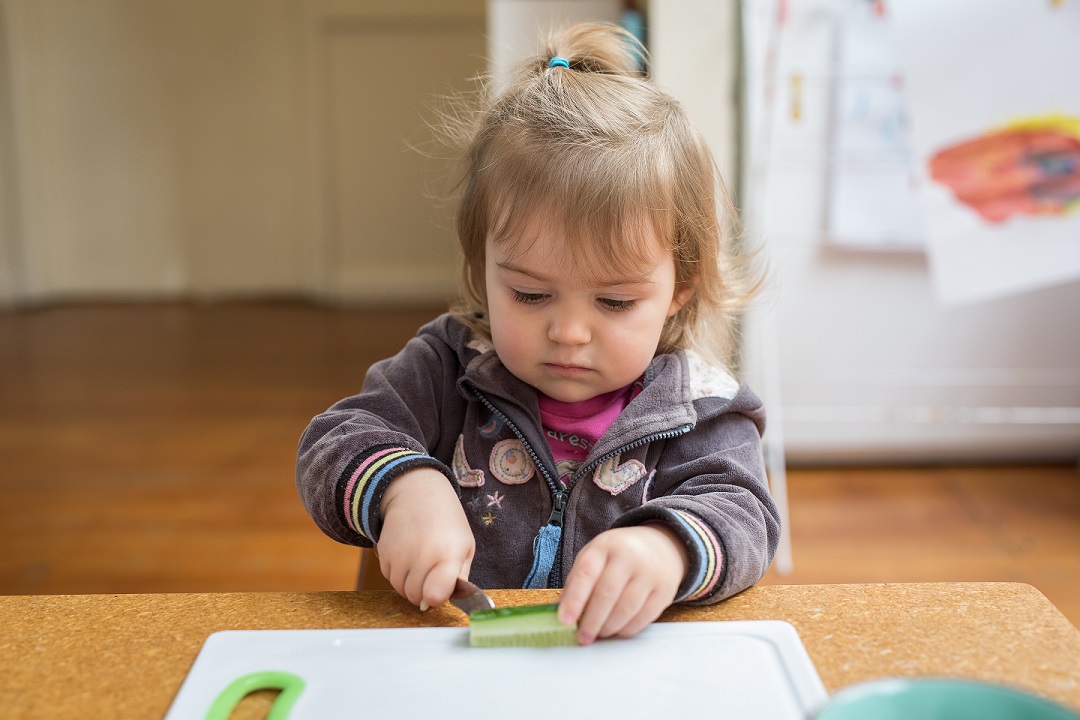As is usual at the start of a new term we have farewelled some tamariki from playgroup as they turn 3 and transition into preschool; and we have also welcomed new whānau just beginning their time at Wā Ora. Often the parents of our new tamariki comment about the work they see the nearly 3-year-olds doing; they have never imagined a 2-year-old preparing kai for morning tea, setting a place at the table, pouring a glass of water, serving themselves and cleaning up afterwards. I always explain that it is a learning process, that independence is not something that comes about in an instant, but is a journey that begins from the moment of birth. Maria Montessori (1948) wrote that “The essence of independence is to able to do something for one’s self”. We can help our tamariki learn to be independent in many small actions that will lead towards their independence as a grown human being.
The journey towards independence
By Dannielle King – Playgroup Facilitator – Preschool
We must help them to learn how to walk without assistance, to run, to go up and down stairs, … to express their needs in a way that is clearly understood, and to attempt to satisfy their desires through their own efforts. All of this is part of education for independence. (Maria Montessori, The Discovery of the Child, 1948, p. 58)
As parents, we need to give some thought and effort to educating for independence. In most cases it is quicker and easier for us to do things for our children than to teach or allow the time for tamariki to do it themselves. I’m sure everyone has heard the Montessori quote “Never help a child with a task at which he feels he can succeed.” — I would perhaps replace “never” with “as often as possible” though!
In the first few years this seems like a constant effort, as physical capabilities grow so quickly, along with will power. I’m sure we can all remember hearing “me do it!” even if it is many years since we had a 2-year-old. Every moment that you spend teaching, helping or waiting, results in increased confidence and independence. This is not just for younger ones though. A 2-year-old cutting a banana, a 7-year-old packing their own lunchbox, a 10-year-old making lunch for the family, or a teenager cooking dinner; all are steps towards the young adult who leaves home with the confidence that they will be able to look after themselves.
